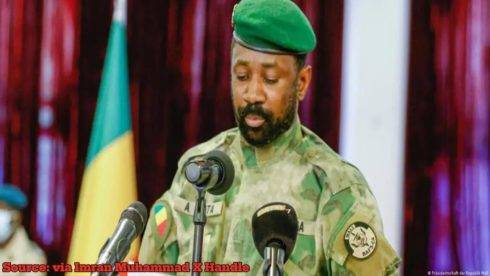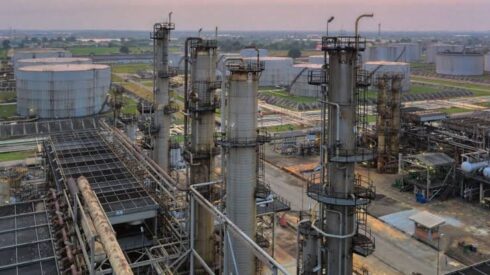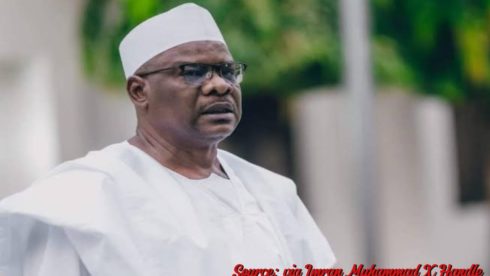Mali’s junta has taken a decisive step by halting all political party activities indefinitely. This decree, announced by government spokesperson Abdoulaye Maiga, has stirred significant debate within Mali and beyond. The move is framed as an effort to maintain public order, but it has raised concerns about the country’s democratic future and the role of the military in governance.
Many fear that this decision could further destabilize Mali, which has already experienced significant political turmoil in recent years. The junta’s actions come against the backdrop of widespread dissatisfaction with the government’s handling of various issues, including security, corruption, and economic development. The international community is closely watching the situation, with calls for the junta to respect democratic norms and allow for the peaceful transition of power.
Mali’s Junta, Implications for Political Parties
The junta’s decree has sent shockwaves through Mali’s political landscape, effectively bringing all party activities to a grinding halt. This move has left political parties and their supporters in limbo, uncertain about the future of democracy in the country. With no clear timeline for when political activities will resume, many are questioning the legitimacy of the junta’s authority and its commitment to democratic principles.
The halt on political party activities also raises concerns about the freedom of expression and assembly in Mali. Without the ability to organize and mobilize, opposition parties and civil society groups may struggle to voice their concerns and hold the government accountable. This could further erode trust in the political system and fuel tensions within the country.
Regional Context: Coups in West and Central Africa
Mali’s Junta recent political upheaval is not an isolated incident but part of a broader trend of coups and military interventions in West and Central Africa. Over the past four years, the region has witnessed a concerning rise in military takeovers, with Mali alone experiencing eight coups during this period. This instability has had far-reaching consequences for governance, security, and development across the region.
The spate of coups in West and Central Africa underscores the fragility of democracy in the region and the challenges of consolidating democratic gains. It also raises questions about the effectiveness of regional and international efforts to promote peace and stability in the face of entrenched political interests and socio-economic inequalities.
Mali’s Junta: International Response and Concerns
The junta’s decision to halt political party activities has elicited strong reactions from the international community. Several countries and organizations have expressed concern about the implications of this move for democracy and stability in Mali. Calls for the junta to respect democratic norms and engage in dialogue with political stakeholders have been widespread.
The United Nations, African Union, and other regional bodies have urged the junta to uphold the principles of democracy and human rights. They have called for a swift return to civilian rule through free and fair elections, emphasizing the importance of inclusive governance and respect for the rule of law. However, it remains to be seen how the junta will respond to these calls and whether it will heed the demands of the international community.
Mali’s Junta: Domestic Reactions and Civil Society
Within Mali, the junta’s decree has sparked mixed reactions from various sectors of society. While some support the decision as a necessary measure to restore stability and address the country’s myriad challenges, others see it as a setback for democracy and a violation of fundamental rights. Civil society organizations have been particularly vocal in condemning the suspension of political party activities, calling for the immediate restoration of democratic norms.
The junta’s move has also reignited tensions between different political factions and ethnic groups within Mali. As the country grapples with deep-seated socio-economic grievances and security threats, the suspension of political activities risks exacerbating existing divisions and fueling further unrest. The coming days and weeks will be critical in determining the trajectory of Mali’s political future and the prospects for peace and stability in the region.
Mali’s Junta, Challenges and Opportunities
As Mali navigates this latest political crisis, it faces a host of challenges and opportunities on the path to democratic governance and national reconciliation. The junta must balance the need for stability and security with respect for democratic principles and human rights. This will require genuine dialogue and engagement with political parties, civil society, and other stakeholders to chart a way forward that is inclusive and representative of Mali’s diverse population.
International partners have a crucial role to play in supporting Mali’s transition to civilian rule and addressing the root causes of instability in the country. This includes providing assistance for democratic reforms, strengthening institutions, and promoting inclusive development. Ultimately, the fate of Mali’s democracy rests in the hands of its people, who must seize this moment to demand accountability, transparency, and justice for all.
Table of Contents
Discover more from OGM News NG
Subscribe to get the latest posts sent to your email.













